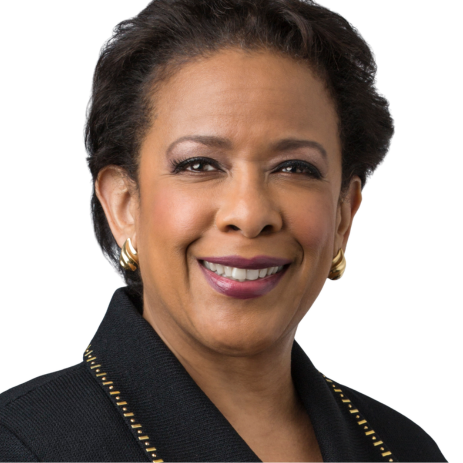Governance Surveys
Directorship Magazine

Why DE&I Audits Are a Critical Proactive Tool for Private Company Directors
Even without shareholder pressure or environmental, social, and governance public company reporting requirements, private companies and their boards may need to be more proactive in identifying gaps in corporate diversity, equity, and inclusion (DE&I) programs and policies—gaps that could expose the company to potential reputational, regulatory, and litigation risk.
Meanwhile, the US Supreme Court’s decision this past year to end affirmative action in colleges and universities has triggered widespread confusion among business leaders about new potential litigation risks on the opposite end of the spectrum: lawsuits targeting the same corporate DE&I programs and policies.
Given the fraught political climate and uncertain legal landscape, management and boards may want to revisit their DE&I programs and initiatives to assess and mitigate any emerging legal or reputational risks by conducting a DE&I audit. Coming into any potential litigation with greater awareness and more effective policies puts both corporations and their boards in a stronger position than if a vulnerability were to be discovered after a suit is filed.
The New Legal Landscape
Though the Supreme Court’s ruling in June 2023 in Students for Fair Admissions, Inc. v. President and Fellows of Harvard College and Students for Fair Admissions, Inc. v. University of North Carolina applies specifically to educational institutions, it has recently spawned several “reverse racism” lawsuits attempting to widen its applicability, targeting both corporate and law firm diversity programs. That, in turn, has triggered hand-wringing in the private sector as companies try to strike the right balance between averting legal challenges to their DE&I programs and maintaining their public DE&I commitments.
Companies and boards may want to keep in mind, however, that the most serious DE&I risk still comes from discrimination lawsuits filed by historically underrepresented groups. Companies also remain obligated to comply with employment laws such as Title VI and Title VII—and may want to focus most of their efforts on ensuring that they are compliant.
The Role of the DE&I Audit
A DE&I audit and the resulting recommendations can provide boards with some much needed clarity on how to be compliant with the law and mitigate legal risks around diversity issues.
DE&I audits offer many advantages. In addition to mitigating legal risks and helping companies get ahead of potential reputational issues, a proactive audit helps ensure that DE&I programs and policies are robust and effective, benefitting employees at all levels and leading to better financial performance. A thorough “health check” of a company’s DE&I initiatives will best position it to both meet its diversity and inclusion goals and mitigate potential reputational and legal risks.
An independent audit offers a purpose-built examination of a company’s DE&I practices, policies, and outcomes. In coordination with the board and other senior leadership, the process begins by determining the scope of the audit based on a company’s particular needs, values, and goals. This is followed by a rigorous internal investigation and ultimately produces practical, concrete guidance.
In addition to assessing where there is room for improvement, an audit provides a plan of action to address any identified gaps or issues in a thoughtful, timely, and transparent way that aligns with the company's unique business interests and priorities.
The Business Case for Robust DE&I Initiatives
As a part of any DE&I "health check," companies and boards may want to see if they have clearly articulated the business case for diversity in their organizations as they assess the strength of their DE&I policies and programs.
Maintaining solid and effective DE&I initiatives has long been shown to be highly beneficial to both employers and employees. Time and again, studies have shown that fostering a diverse workforce, particularly at the board and senior executive levels, is essential to fostering a corporation’s financial success and sustaining that success for the long term. A diversity of views and backgrounds not only enables better decision making and better cultural competency in an international market, it also increases profitability.
Moreover, recent surveys have shown that working for a diverse and inclusive organization is increasingly important to job seekers of all backgrounds—especially those in younger generations—and that many will turn down or not pursue job opportunities because of a company’s perceived lack of commitment to DE&I.
Companies have many lawful ways to maintain strong DE&I programs and policies through the entire employment life cycle. Recruiting efforts, such as pipeline programs, and on-the-job efforts, such as mentoring and providing “reach” opportunities to promising junior colleagues, help companies meet DE&I goals by boosting employee morale and attracting and retaining top talent.
The recent Supreme Court decision provides companies and boards with an opportunity to review and enhance their workforce and board-level DE&I initiatives to ensure that they are both compliant with existing law and are aligned with the business’s stated recruitment, retention and development, and supplier diversity goals.
With an effective DE&I audit, boards and companies can get a handle on whether their initiatives are working, discover where there is room for improvement, and implement practical solutions in a way that sets them up for continued success down the road.
Paul, Weiss is a NACD partner, providing directors with critical and timely information, and perspectives. Paul, Weiss is a financial supporter of the NACD.

Former US Attorney General Loretta E. Lynch cochairs the Civil Rights and Racial Equity Audits practice at Paul, Weiss, Rifkind, Wharton & Garrison. Lynch is a leader of Paul, Weiss’s DEI Strategic Advisory Group.

Liza M. Velazquez is a litigation partner and leader of the Employment Law, Workplace Investigations & Trade Secrets Litigation practice group at Paul, Weiss. Velazquez is a leader of Paul, Weiss’s DEI Strategic Advisory Group.
Registration Now Open for
NACD Directors Summit™ 2026
Register Early and Save $2,000
October 11-14, 2026
The Gaylord National Harbor | Washington, DC Area

